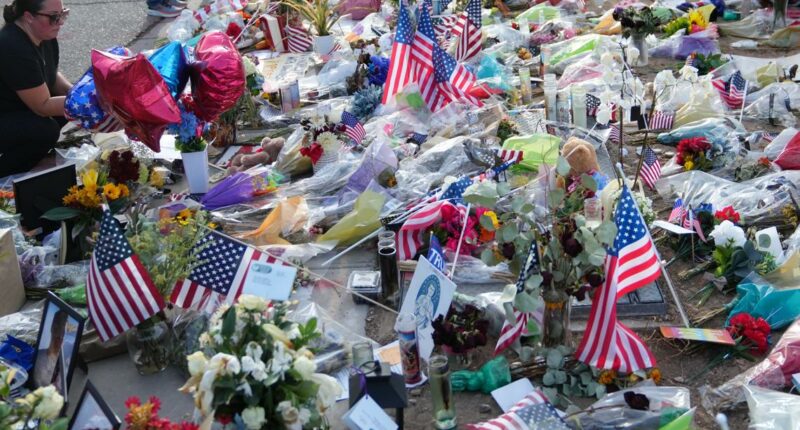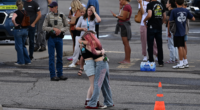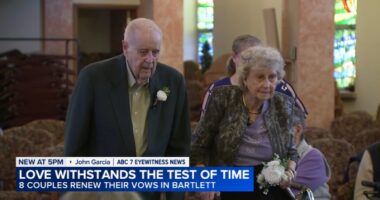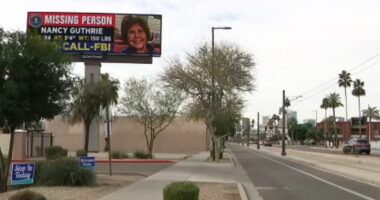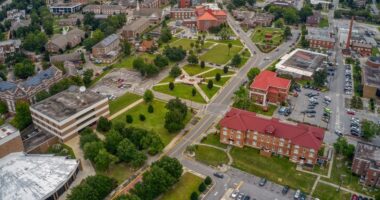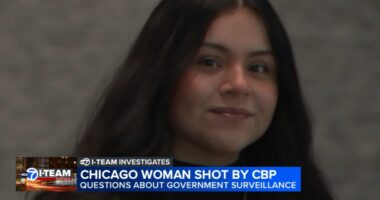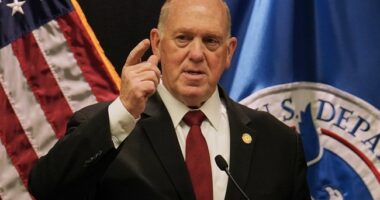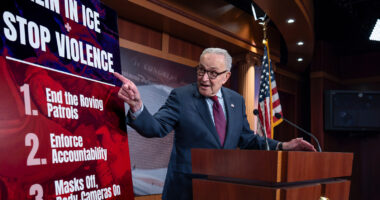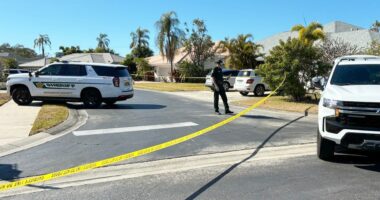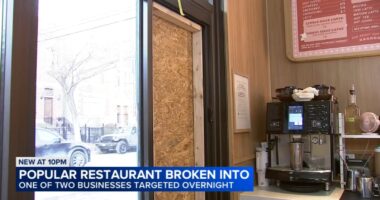Share this @internewscast.com

Political violence is dueling with a complicated economic outlook for space in peoples’ minds as they look toward an uncertain future in the U.S.
DES MOINES COUNTY, Iowa — According to a recent AP-NORC poll, Republicans have developed a significantly more negative perspective on the country’s direction. This survey was conducted shortly after the assassination of conservative activist Charlie Kirk last week.
The September survey conducted by The Associated Press-NORC Center for Public Affairs Research reveals a steep decline in the percentage of Republicans who believe the nation is on the right track. Currently, only about half of Republicans hold this view, compared to 70% in June. The drop is particularly pronounced among Republican women and younger party members under 45.
In general, approximately one-quarter of Americans feel the country is moving in the right direction, a decrease from around 40% in June. The opinions of Democrats and independents have remained relatively stable.
Conversations with Republican respondents in the poll suggest that growing concerns over political violence and social discord are significant factors in their altered outlook. The summer, marked by violent incidents involving political figures, has heavily influenced this shift, alongside worries about employment, living costs, and crime.
Chris Bahr, a 42-year-old Republican from suburban Houston, expressed, “I’ve been quite concerned about the degrading political discourse and now, the alarming acts of violence.”
The software administrator continued, “Had you asked me a couple of weeks back, I wouldn’t have highlighted it as a primary issue, only a persistent unease. It was something I’d considered, but now it’s about violence, whereas before it was more about a feeling of hostility and division.”
An unusually sharp drop among Republicans
Views of the country’s direction tend to be fairly stable, but major events sometimes shake partisans’ feelings about the state of the country, even when their party is in power. Democrats, for example, were more likely to say the U.S. was headed the wrong way after the Supreme Court in June 2022 overturned Roe v. Wade, the landmark decision that established a federal right to abortion. Democrat Joe Biden was president.
But the GOP shift in optimism, especially among younger Republicans and GOP women, is noteworthy for its scale. The drop in Republicans who see the country headed in the right direction is bigger than the decline between October 2020 and December 2020, after President Donald Trump, a Republican, lost his reelection bid. It’s more similar in scope to the decline that occurred in the first two months of the COVID-19 pandemic.
Among Republicans younger than 45, the decline is particularly glaring: 61% say the country is headed in the wrong direction, a spike of 30 percentage points since June, the last time the question was asked.
Mostly, 42-year-old truck driver Mustafa Robinson, a Republican, is troubled by the cost of living, but he has been increasingly bothered by what he wishes was a stronger sense of national unity.
“It’s like, you think you’re heading in the right direction with your career and your job, but everything around you is going up in price. It seems like you can’t catch a break,” said Robinson, a married father of three who lives in Delaware County just southwest of Philadelphia. “But we are also supposed to be united as a country and coming together. And we are not. I’m so perplexed how we’re not on the same page about anything, so bad that these people are being shot.”
Some express concern about political violence
Kirk, who started the Arizona-based political organization Turning Point USA and had been a leader rallying young conservatives for Trump, died Sept. 10 after he was shot during an outdoor event at Utah Valley University.
On June 14, Democrat Melissa Hortman, Minnesota’s state House speaker, and her husband were shot to death in their in their suburban Minneapolis home in what authorities called an act of targeted political violence.
In April, Pennsylvania Gov. Josh Shapiro, his family and guests fled the governor’s mansion in Harrisburg after a man broke into the home and set a fire that caused significant damage. It happened during the Jewish holiday of Passover, and Shapiro is Jewish.
Last year, Trump was the target of an assassination attempt during an election campaign rally in Butler, Pennsylvania, where he was shot in the ear.
Worries about political violence aren’t new for many Americans. Last October, an AP-NORC poll found that 42% of U.S. adults were “extremely” or “very” concerned about the possibility of increased political violence directed at political figures or election officials in the aftermath of the presidential election.
Trump has blamed the “radical left” for Kirk’s killing and has discussed pursuing progressive groups in response. Without establishing any link to last week’s shooting, he and members of his administration have discussed classifying some groups as domestic terrorists, ordering racketeering investigations and revoking tax-exempt status for some.
The economy is also a factor for some
GOP women’s view of the nation’s course has shifted almost as much as younger Republicans’ view, according to the poll. About three-quarters of Republican women say the country is going in the wrong direction, up from 27% in June. By comparison, 56% of Republican men say the country is going the wrong way, up from 30% in June.
And not all of the people who think the U.S. is on a worrying trajectory have political violence at the top of their mind. Joclyn Yurchak, 55, from northeast Pennsylvania, ticked off a list of problems she feels have put the United States on a downward path.
Yurchak, a warehouse worker going back to school for business, says good jobs are harder to find and require longer commutes. She is bothered by illegal immigration, though she believes Trump has begun to make inroads, and worries about criminal drug activity in her area.
Asked about Kirk and other political targets, Yurchak attributed the episodes to a broader fraying of the nation’s social fabric.
“It’s all the violence, not just political. There’s just so much crime in the country. It’s disgusting,” said Yurchak. “Nobody has respect for anybody anymore. It’s sad.”
Like others, Minnesota Republican Jeremy Gieske first noted economic uncertainty as the chief reason for his wrong-track opinion, before circling back without prompting to what he called “all the political poison.”
“We’re at each other’s throats,” said the 47-year-old product manager from Rogers, just northwest of Minneapolis. “This viciousness on both sides. We have villainized others, like we’re on the brink of social collapse. Is Kirk the straw that breaks the camel’s back or sets off a powder keg? It’s on everyone’s mind.”
Sanders reported from Washington.
The AP-NORC poll of 1,183 adults was conducted Sept. 11-15, using a sample drawn from NORC’s probability-based AmeriSpeak Panel, which is designed to be representative of the U.S. population. The margin of sampling error for adults overall is plus or minus 3.8 percentage points.
Copyright 2025 Associated Press. All rights reserved. This material may not be published, broadcast, rewritten, or redistributed.
